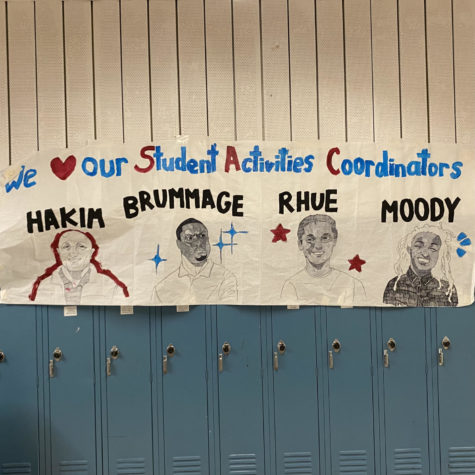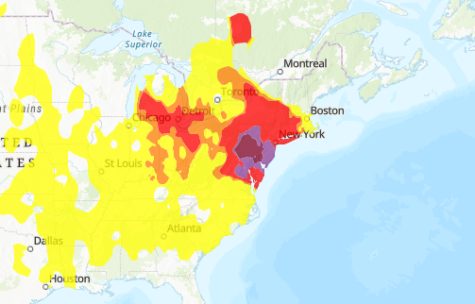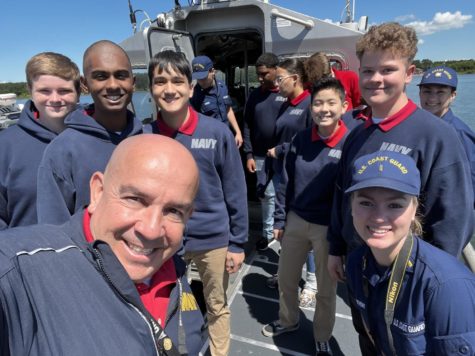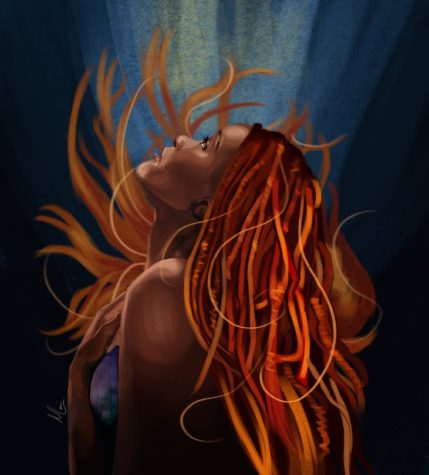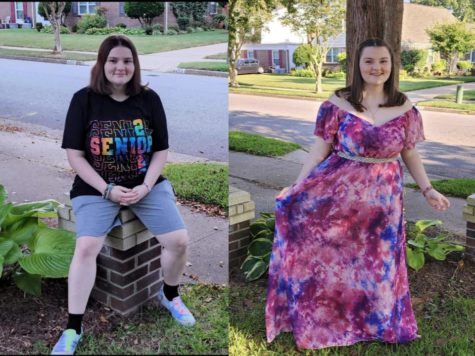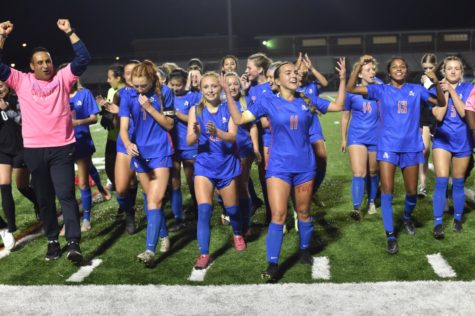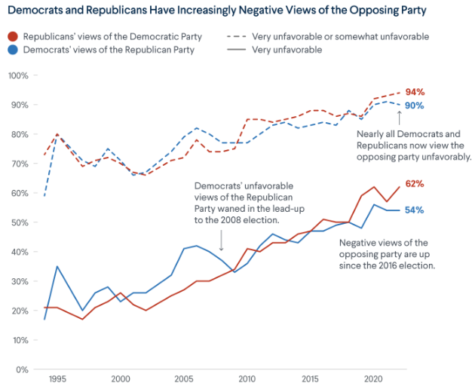Us provides psychological horror
April 9, 2019
By Daria Burnley
When going into Jordan Peele’s second directorial look into horror, do not expect another Get Out. Although lacking in the overt social commentary and sharp-minded wit in its writing and plot, Us is instead a two-and-half-hour-long dive into insanity and violence that starts as a story about a home invasion and turns into something much bigger, leaving you later sitting at home wondering what happened, and as a response to another famous horror film, you will be wary of the sewers.
It begins in 1986, following a girl with her family at a carnival in Santa Cruz. Peele demonstrates his cinematic prowess as tension beings to build: The screams from the cheerful roller coaster rides forebode the ominous and dark turn the opener takes. As the girl wanders away from her parents she ends up in mirror maze in which she quickly gets lost. As she attempts to escape while whistling a nursery rhyme tune, another whistle responds to her. As she continues through the maze she finds herself back to back with a girl who from behind looks similar to her, and as she turns around the look of horror on her face is the last thing we see before the opening titles begin.
The film continues as we see the same girl now an adult who we learn is named Adelaide Wilson (Lupita Nyongo) revisit her childhood summer home with her husband Gabe (Winston Duke), and her two children Jason (Evan Alex) and Zora (Shahadi Wright Joseph). Adelaide is weary on revisiting the same beach where she got lost in the maze all those years ago. Her suspicions quickly begin to be confirmed, as uncanny coincidences like a Frisbee landing perfectly on a circle, and her son getting lost on that beach (albeit only briefly) make her certain that something bad will happen as she explains to Gabe that the little girl she saw in the mirror maze is still after her.
The tension she feels is translated to us as we are left wondering what is going to happen. Any attempt to calm her worries are quickly cut short when the power goes out, and as the confused family members try to get the lights back on, Jason calmly says, ¨There’s a family outside.”
From that point forward, our lead family is terrorized by a family of, well, themselves. Identifying only as the Tethered, the doppelgangers are prepared to eliminate the family, as it has become ¨their time up there.¨
The biggest compliment to this film is Lupita Nyongó acting as both Adelaide and Red. Her performance is a captivating study on subtlety. Both characters are created with such detail that every smile and word spoken is somehow a clue to the climax.
Nyong´o accomplishes a lot with her role. It solidifies the importance of women of color in film, especially in the horror genre. In horror films, black characters are usually sidekicks, the sacrificial throwaway that helps the white heroes to survive, or comedy fodder to cut the tension. Us’s leads are anything but. They don’t have to fight for their agency and power as they already have it; their conflicts are personal and aren’t owned by others. Peele´s Us shows how a successful movie can be centered around a black family and not make it about their race. Us is the embodiment of a more ambitious Peele. As for horror, it’s not that scary and the marketing did oversell its impact. Some scenes are more rushed and underdeveloped than others, as the film decided to focus more on the setup for the finale. However, it doesn’t matter.
Peele has proven that his style of work isn’t meant to be kept in a singular box or genre. Its charm and importance is in its complexity and the way it’s supposed to make you feel, along with being an entertaining ride into a weird, lore-ish, nightmare scenario. The Tethered and their revenge plot are a macabre look into what scares Americans and what scares you.
Us is a vehicle for further conversations, perhaps not as profound as that of Get Out, but Peele´s brand of smart horror and the absurd but poignant creativity of his storytelling will still continue to remain a staple in horror films to come.

